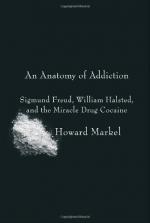|
This section contains 226 words (approx. 1 page at 300 words per page) |

|
1. The National Institute on Drug Abuse (NIDA) contends that the more treatment recovering addicts receive, the less likely they are to relapse. Anita Dubey, in contrast, argues that addicts can recover without treatment if they possess social support systems. Based on the evidence these authors provide, whose argument do you find more persuasive and why?
2. Controlled drinking has been proposed as an alternative to traditional alcoholism treatment programs that stress abstinence. According to Nancy Shute and Laura Tangley, some problem drinkers can learn to moderate their consumption of alcohol. The Hazelden Foundation and James E. Royce, on the other hand, believe that problem drinkers can never drink responsibly. How do these groups’ different views on the definition of alcoholism influence their beliefs about the feasibility of controlled drinking?
3. One of the most controversial approaches to heroin addiction is the proposal to supply addicts with legal...
|
This section contains 226 words (approx. 1 page at 300 words per page) |

|




